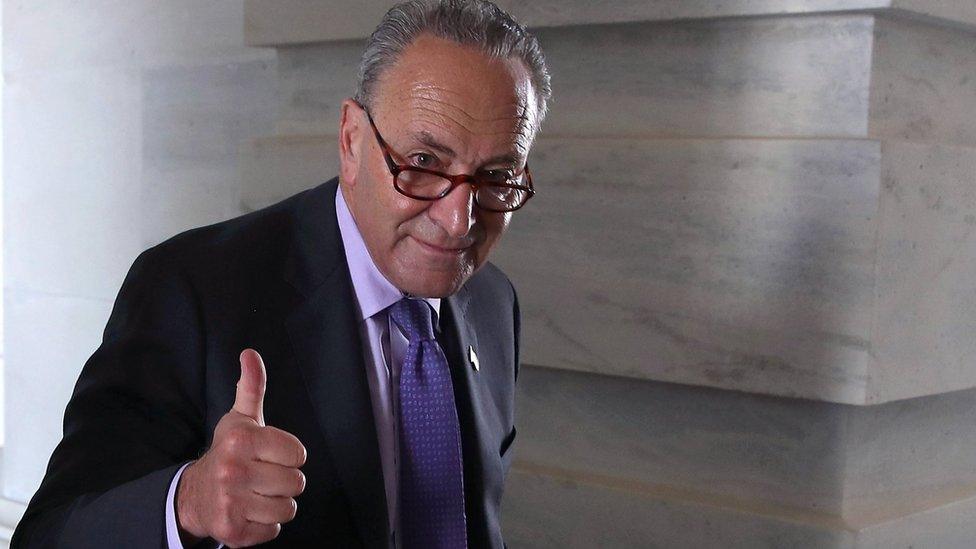Democrats' Better Deal bids to grab Trump's populist mantle
- Published

Democrats will focus on the economy as they try to win voters
Democrats have unveiled a populist economic rebrand that seeks to tap into the frustration among working families which swept Donald Trump to power.
Billed as A Better Deal, their plan calls for infrastructure investment, tougher regulation of drug firms and creating new rules on monopolies.
The plan is the start of a "new version of the party", said Democratic Senate leader Chuck Schumer.
They hope the policy will be a winner in next year's midterm elections.
Democrats struggle to find a message
The Democrats' more populist tone comes in the wake of the party's humiliating defeat in the 2016 election, when President Trump's America First rhetoric connected with voters.
The plan's title echoes the language of self-described deal-maker Mr Trump, as well as Democratic President Franklin Delano Roosevelt's New Deal reforms.
Hover over the curve to see figures for each month.
Democrats, who acknowledge failing to articulate a clear agenda last year, are also appealing to the faction of their party that backed socialist Bernie Sanders.
Senator Schumer of New York told a press conference in the Washington suburbs: "When you lose elections as we did you don't flinch. You don't blink.
"You look in the mirror and ask, 'what did we do wrong?'
"The number one thing we did wrong was not present a strong, bold economic agenda."
His remarks amount to an implicit criticism of Hillary Clinton, the party's standard-bearer last year.
Their ideas build on existing proposals, but many face fierce opposition from Republicans.
Democrats said corporate power has created a system that is "rigged" - and that its influence was growing under the Trump administration.
The plan calls for by pharmaceutical companies, raising the minimum wage to $15 (拢11.50) an hour and creating on corporate mergers, among other proposals.
The blueprint does not directly address the debate over healthcare reform.
Senator Schumer acknowledged the policies themselves - some of which have languished as bills - face long odds.
But he said the party must start rallying support now.
The roll-out was promoted in a series of co-ordinated newspaper op-eds on Monday.
"Democrats will show the country we are the party on the side of working people," he said.